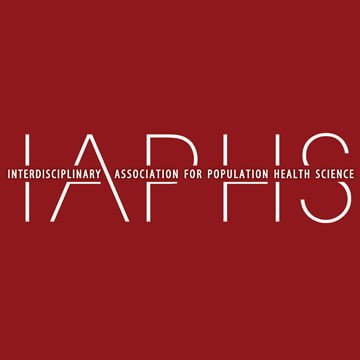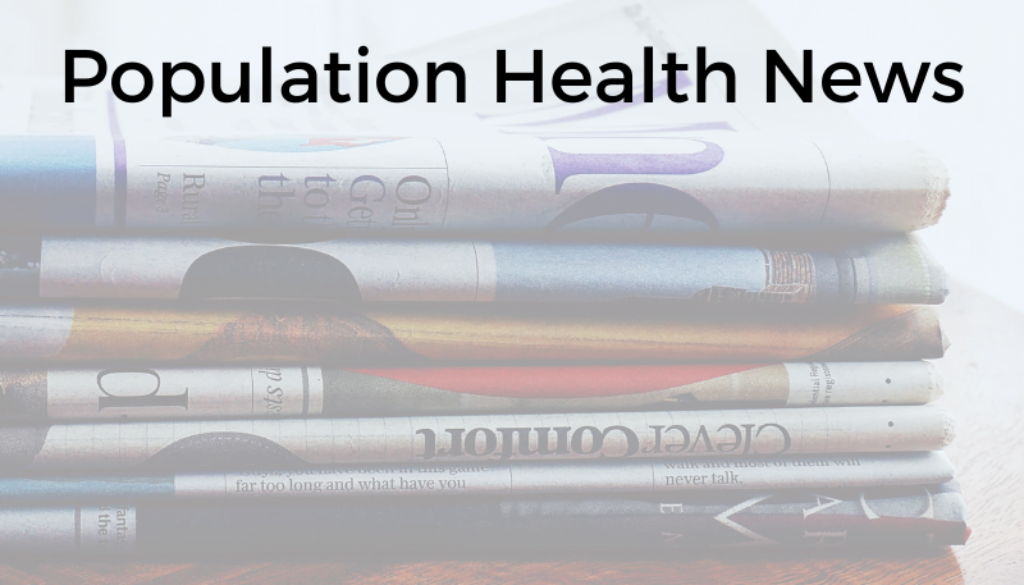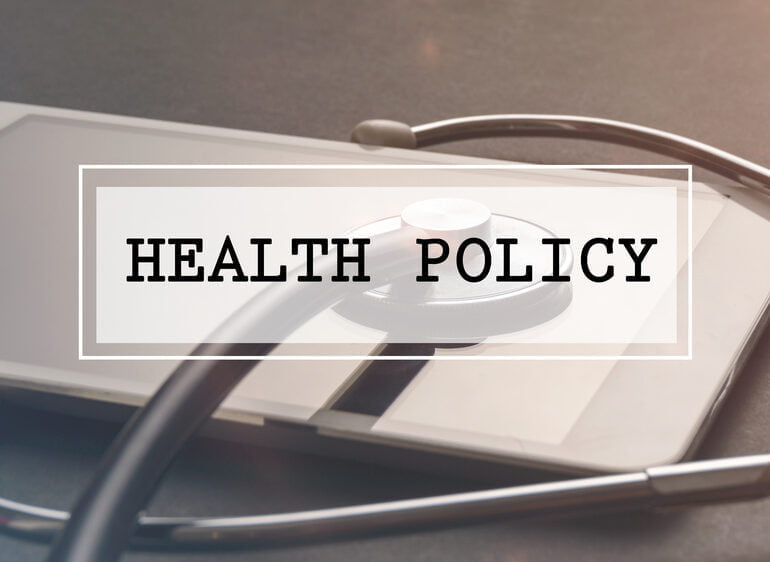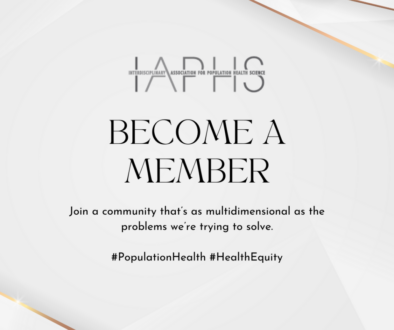Population Health News Roundup: August 2023
JoAnne Dyer
IAPHS Members in the News

Patricia Homan and Tyson Brown in The Milbank Quarterly: “The U.S. Department of Health and Human Services should facilitate the creation and maintenance of a national publicly available, user-friendly data infrastructure on contextual measures of structural oppression.” (April 2023)
Roland J. Thorpe Jr in Disability and Health Journal: “Access to SNAP benefits is not proportionate to the scale of food insecurity among households that include people with disabilities. Action is needed to strengthen food assistance for those with disabilities.” (June 2, 2023)
Paris Adkins-Jackson in Psychology of Violence: “Both police brutality and heightened vigilance were associated with depressed mood and generalized anxiety….Police brutality is associated with negative mental health outcomes among Black people.” (2022)
Carlos Taveres in SAGE Open: “This study contributes to the existing literature by highlighting that whether racial identity is health-protective against perceived racism depends on the level of perceived racism Black Americans experience.” (February 11, 2023)
Christina Roberto in JAMA Network Open: A cohort study of loyalty cardholders suggested that the Philadelphia beverage tax was associated with a 7.8% decline in the volume of taxed beverages purchased. “These findings suggest that beverage taxes are a key public health policy strategy for reducing purchases of sweetened drinks.”
Jennifer Karas Montez and Shannon Monnat were awarded a 5-year, $1.8 million grant from the National Institute on Aging: “Geographic Trends and Disparities in Psychosocial Wellbeing, Health Behaviors, and Mortality in Midlife.” (via Syracuse University Lerner Center, Facebook, August 11, 2023)
Steven Woolf is quoted in this NPR article on heat waves and vulnerable populations. Several risk factors can put vulnerable people at higher risk of illness and harm during high temperatures. Obesity, diabetes, heart disease, and certain medications can affect the ability to adapt to heat and make symptoms worse. Older people, communities of color, and people in lower socioeconomic groups are hit harder. (August 10, 2023)
Sandro Galea in JAMA Network Open: Nebraska’s rejection of additional SNAP funds was associated with increased food insecurity and increased rates of hospitalizations for causes both related to and not related to COVID-19. (August 9, 2023)
Health Equity and Disparities
Interpersonal violence, the COVID pandemic, and marginalized communities: Social stressors, job loss, isolation, and other factors contributed to increased domestic violence in the U.S. during the pandemic. The impact was greater in marginalized communities, especially among Black women and Latinas. (American Journal of Public Health, June 2023)
Large disparities in mental health found across multiple groups: United Health Foundation’s America Health Rankings “Mental and Behavioral Health Data Brief” reports many disparities across racial/ethnic groups, people with disabilities, LGB adults, young adults, and gender. (United Health Foundation, 2023)
Environmental Health and Justice
People in rural areas are especially vulnerable to climate change: People in rural communities are more likely to work outdoors, be exposed to heat and wildfire smoke, and have less access to health care, among other factors. (American Association of Medical Colleges News, July 13, 2023)
Indigenous and Hispanic communities, Oppenheimer, and the legacy of the Trinity site: Communities impacted by nuclear testing are speaking up about their omission from the Oppenheimer blockbuster movie–and the long shadow of radiation-related illness and death. (Science and History Institute’s Distillation Magazine, July 16, 2023)
Built Environments, Spaces, and Places
Portland, Oregon moves toward equity in city parks: However, some communities are skeptical that the recent parks levy will benefit them. Some groups have concerns about affordability, proximity, and maintenance backlogs. (The Skanner, July 27, 2023)
Historical redlining associated with cardiovascular disease: “Among veterans with cardiovascular disease, those from historically redlined neighborhoods were more likely have a CV event or die.” (Healio, July 11, 2023, from a JAMA Network Open Original Investigation)
Policy and Programs
Arizona water policy harms the Hopi Tribe: In the latest legal battle for water, the Hopi were awarded “less than a third” of the water they sought. The tribe has long struggled to get clean water, with many wells tainted by arsenic. One tribal leader called the decision “a modern-day genocide.” (ProPublica, July 7, 2023)
New NASEM report addresses racial, ethnic, and tribal health equity: Recommendations of the report include an equity audit of current policies, an equity scorecard, increased funding, and data disaggregation. (July 2023)
Free mobile food market program is associated with improved mental health: Community health center patients who accessed “free produce, dairy, and high-protein foods” found that their depressive symptoms were reduced. (Boston University School of Public Health from an article in the NEJM Catalyst Innovations in Care Delivery, January 27, 2023)










All comments will be reviewed and posted if substantive and of general interest to IAPHS readers.